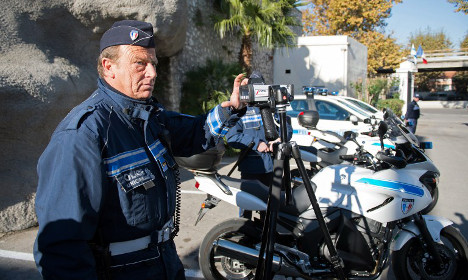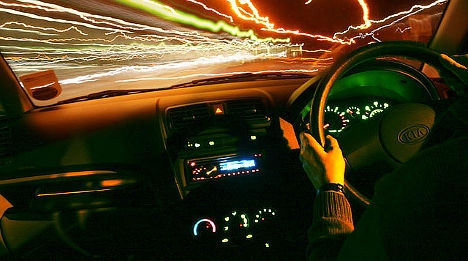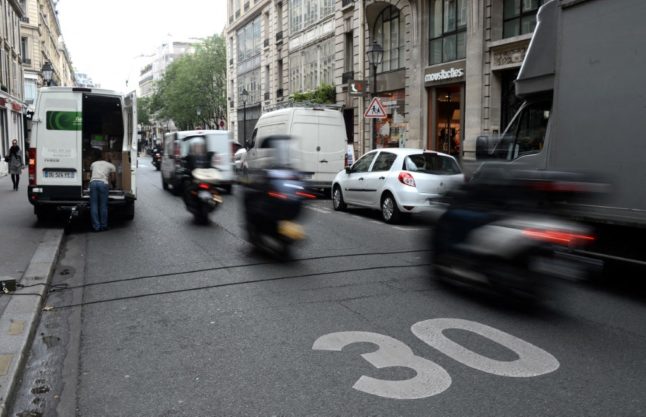PV penalty notices, (procès-verbal in French), can be given out for anything from speeding and drink driving to illegal parking.
MOTORWAY
Prolific French traffic cops ‘given €600 bonus’
French traffic police officers are getting huge bonuses if their unit succeeds in handing out the most fines for driving offences, according to a report from an auto magazine on Friday.
Published: 17 July 2015 16:53 CEST

A police officer in Marseille keeps an eye out for speeding motorists. Photo: AFP
Ever had the feeling that a police officer seemed only too happy to give you a speeding ticket?
You may have been right.
Auto Plus magazine revealed in its Friday issue that traffic police units from the CRS that handed out the most PV penalty notices for drivers were being awarded bonuses of €600 each.
The magazine, which has denounced the policy of targets, got the information courtesy of a leaked police document from the national police, which is said to have outlined the top nine motorway patrols and 22 motorcycle units across the country.
These units were ranked and then awarded points for their productivity.
“After a 12-month period, the two motorway brigades and the two motorcycle units that accumulated the most points are given an annual bonus,” Auto Plus reported in an online summary of the story.
The brigades were then given a bonus that is equally divided into €600 for each officer in the unit, the magazine claimed.
For the last 12 months, police in the north and the west of Paris topped the charts when it came to giving motorway fines, while officers in southern Pau and northeastern Reims were most productive on motorbikes.
The magazine noted that it was “shocking” that motorists weren't being treated the same way across France.
The head of the UNSA Police Union, Philippe Capon, was unimpressed with the news.
“The PV penalty notices have become one of the most important criteria for valuing the career of police officers,” he told the magazine.
He added that everything was being done to hasten the ticketing process, including an increase in electronic controls, which he said often leaves ticketed motorists confused and unable to defend themselves.
“These kinds of methods do nothing to improve relations with the general public, and even change motorists' driving behaviour so that they're trying to avoid getting caught.”
PV penalty notices, (procès-verbal in French), can be given out for anything from speeding and drink driving to illegal parking.
France's national police force however issued a quick repost, insisting that they do not employ a “policy of targets” and that any evaluation of performance is carried out with the aim of improving safety on French roads.
“The battle to improve road safety is absolute priority for the government,” a statement from the police added.
Url copied to clipboard!



 Please whitelist us to continue reading.
Please whitelist us to continue reading.
Member comments